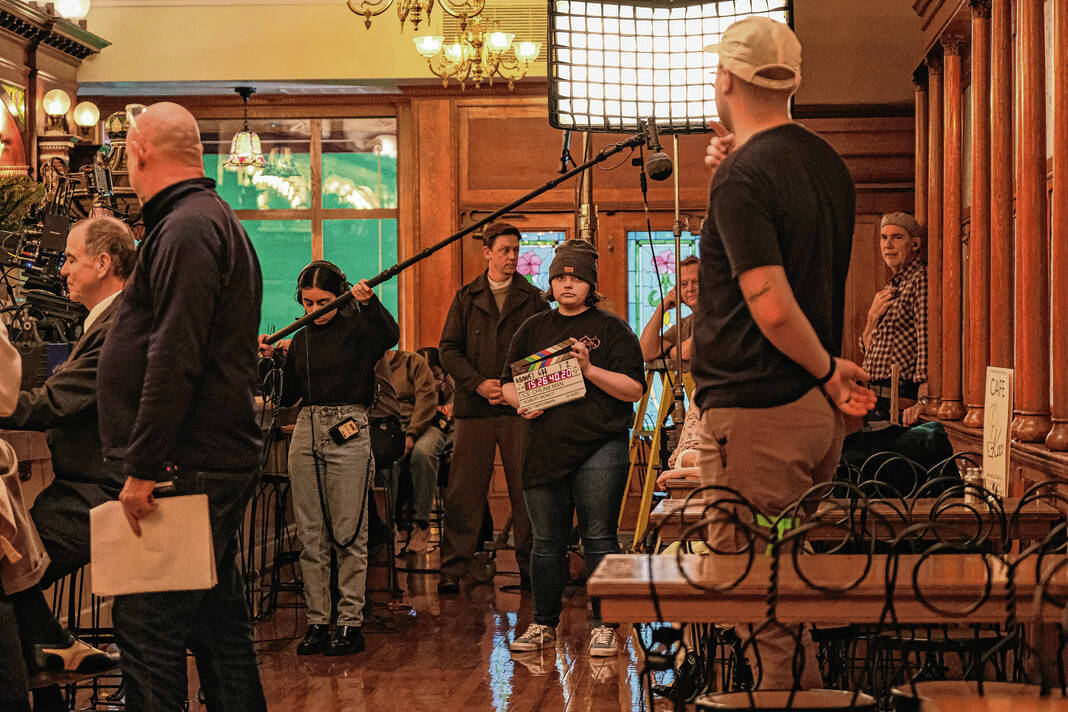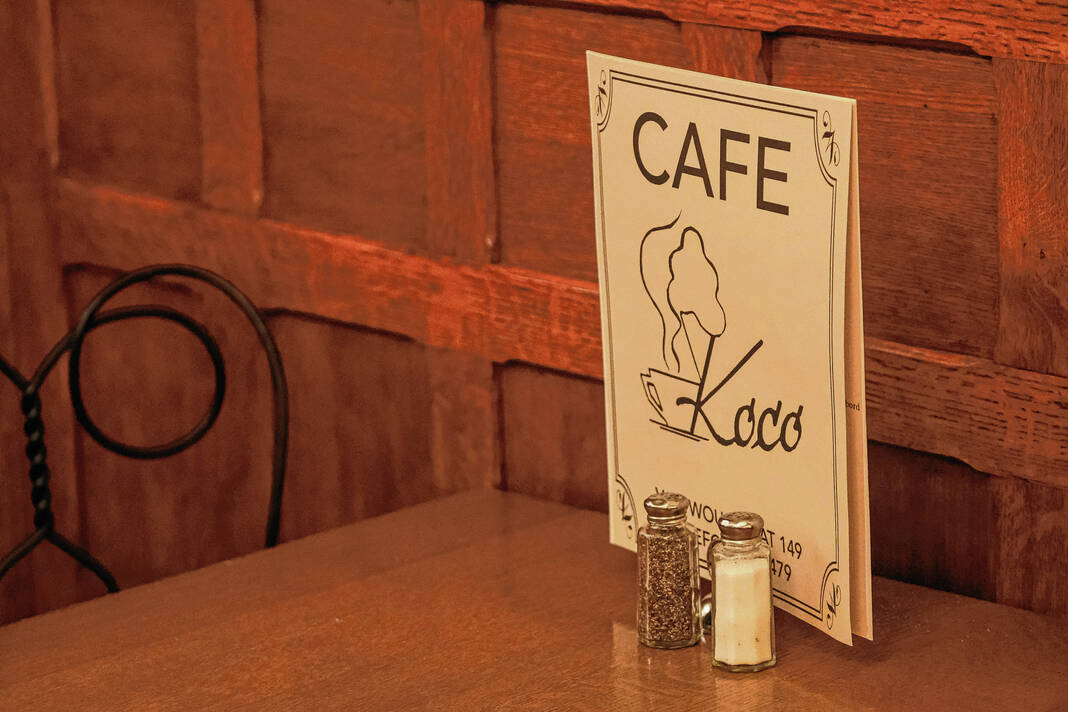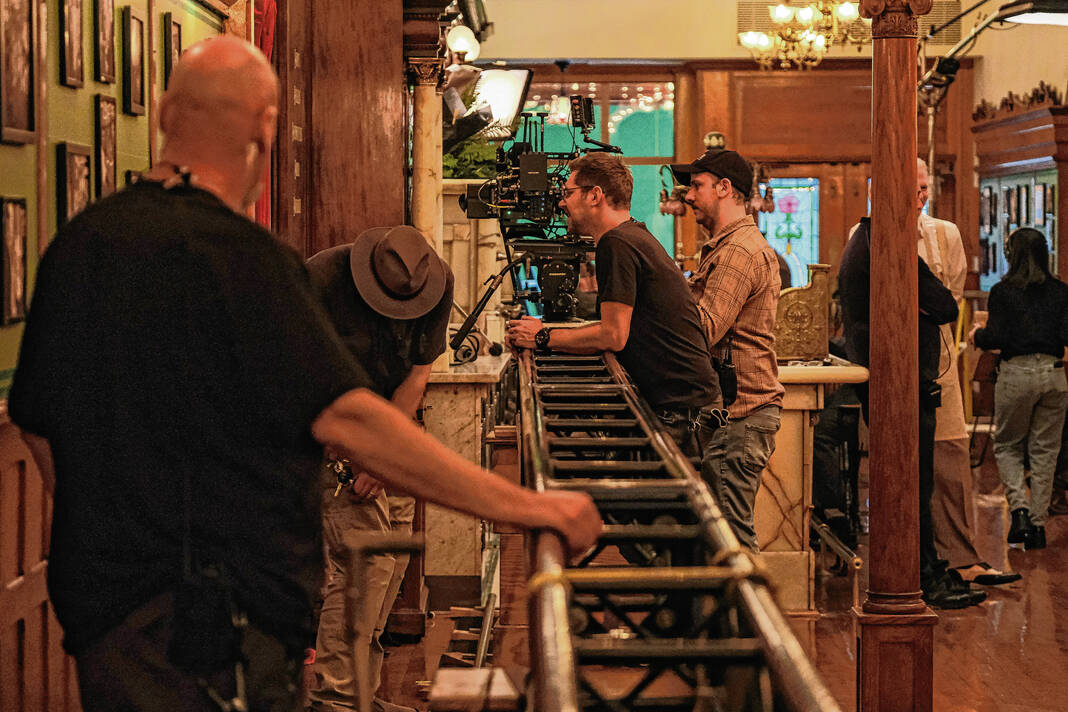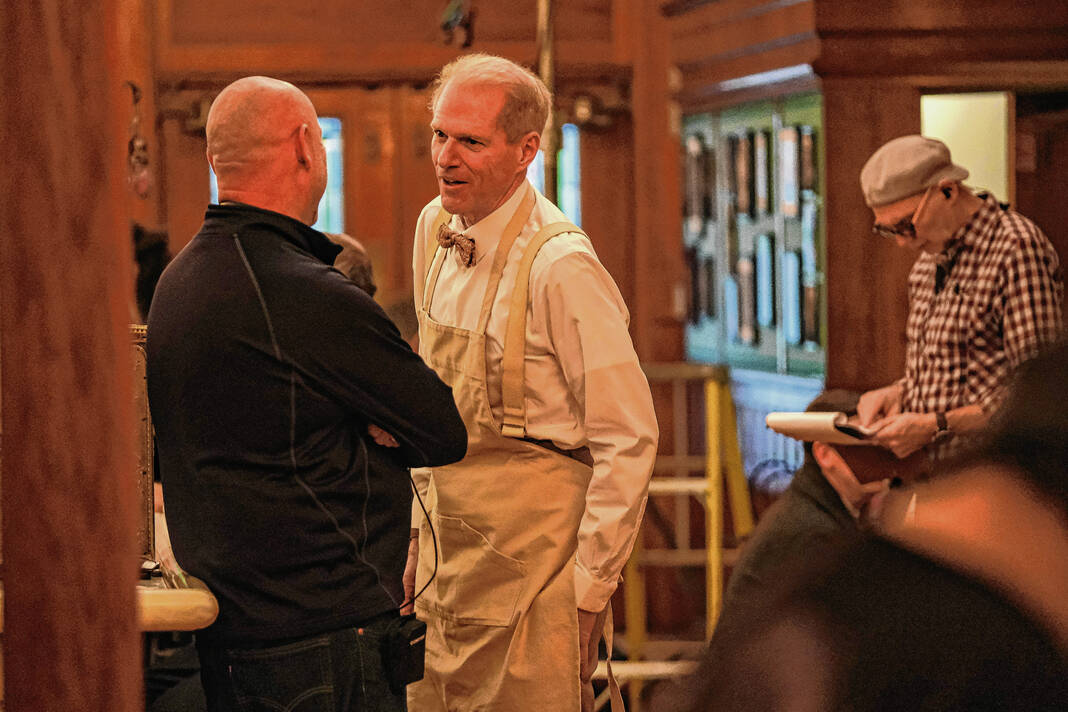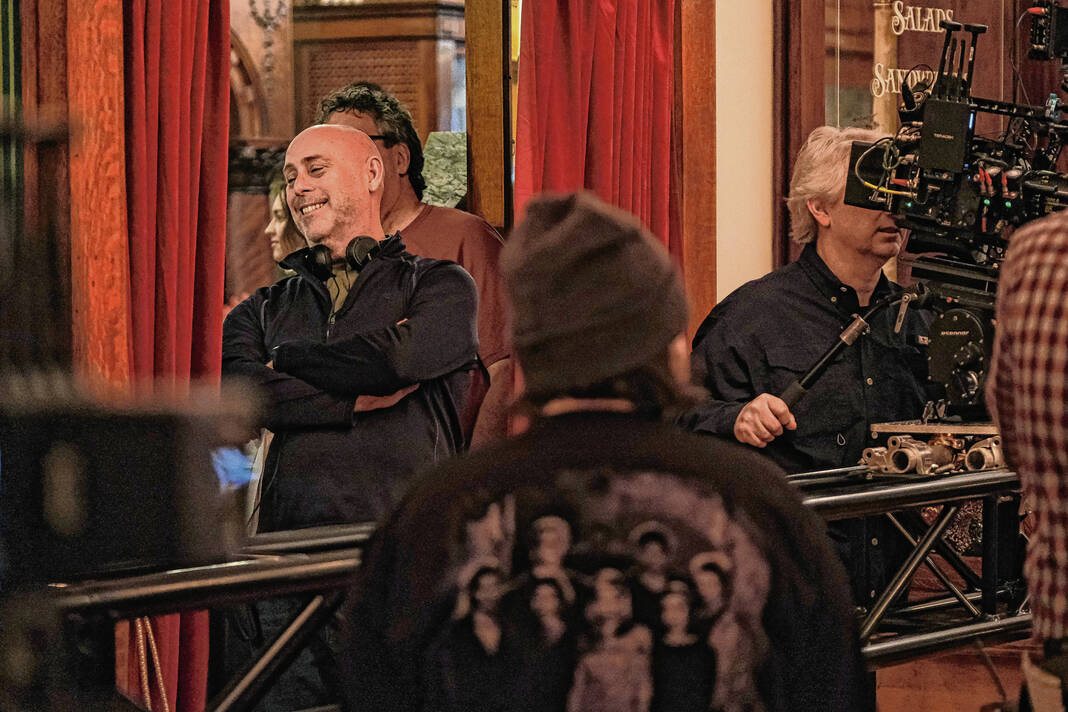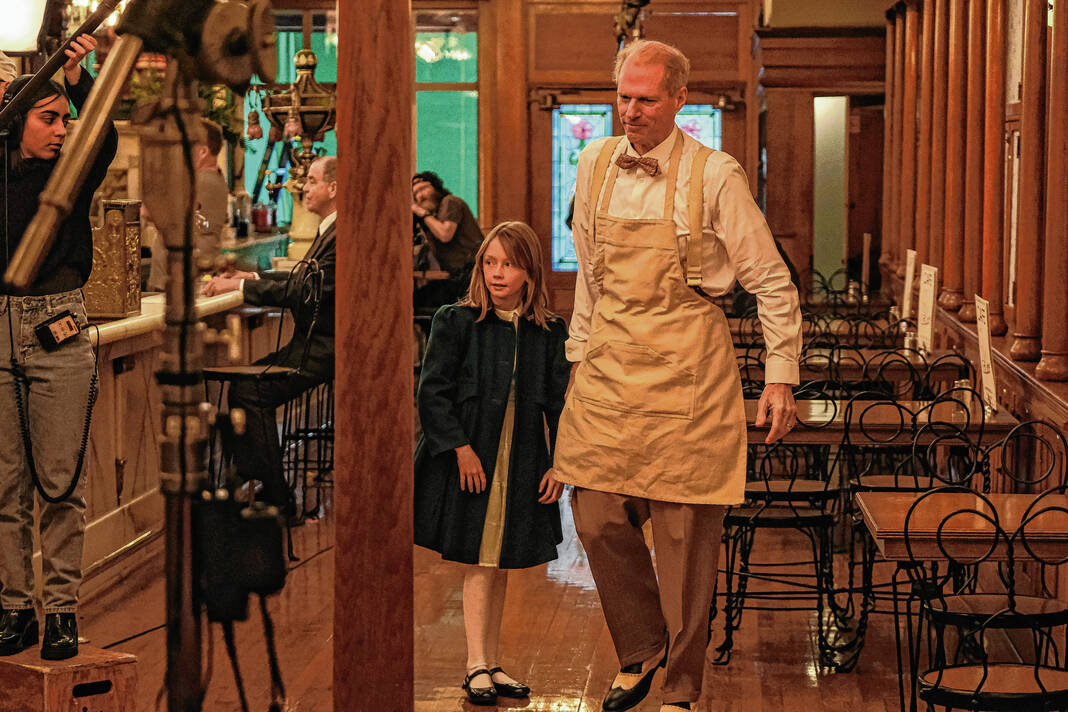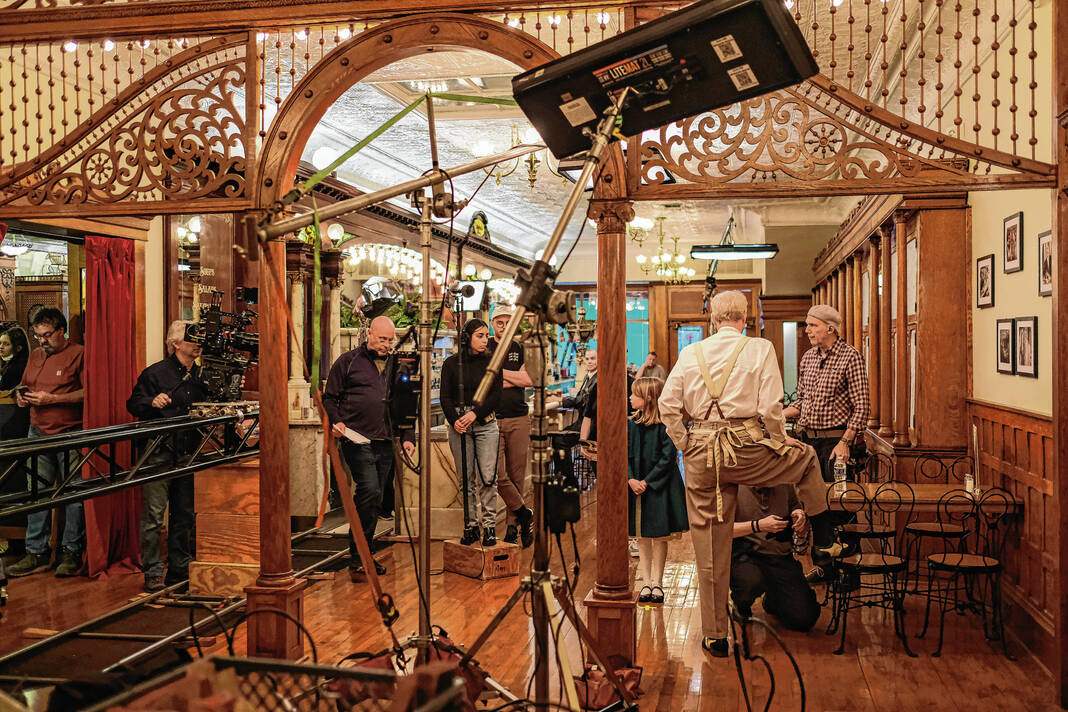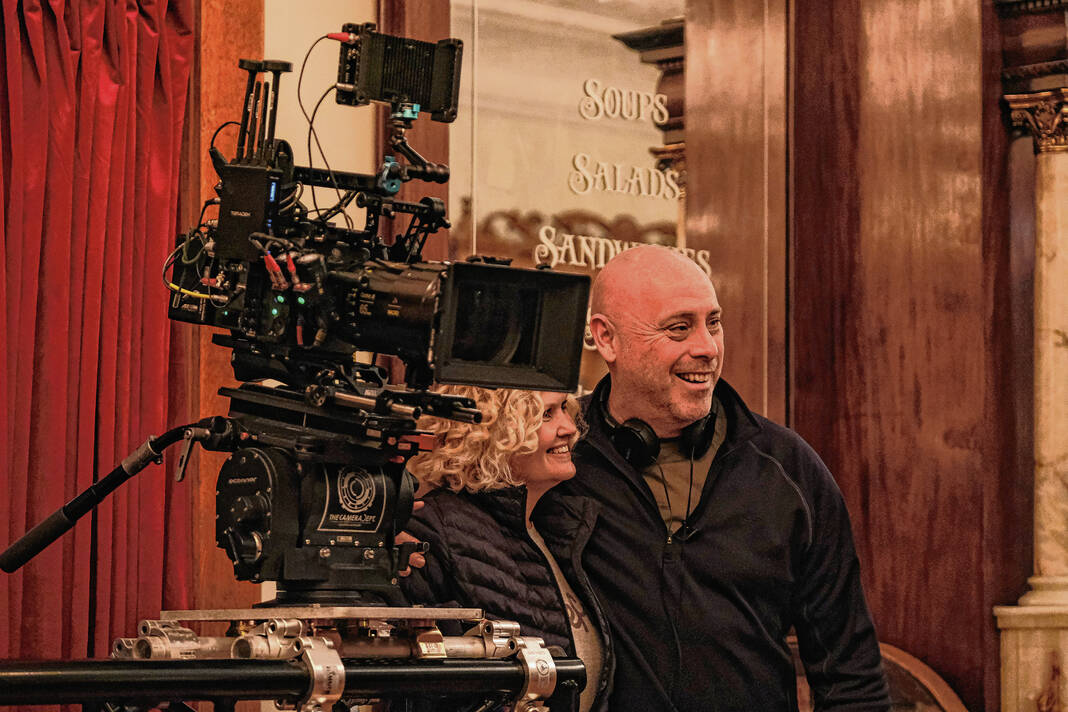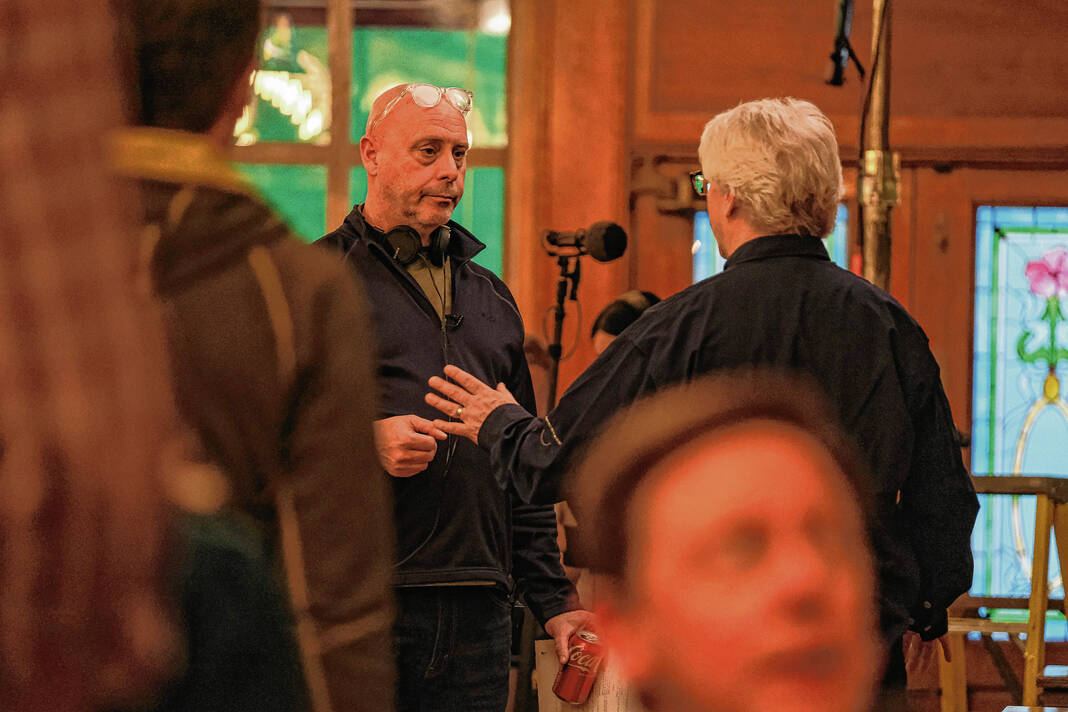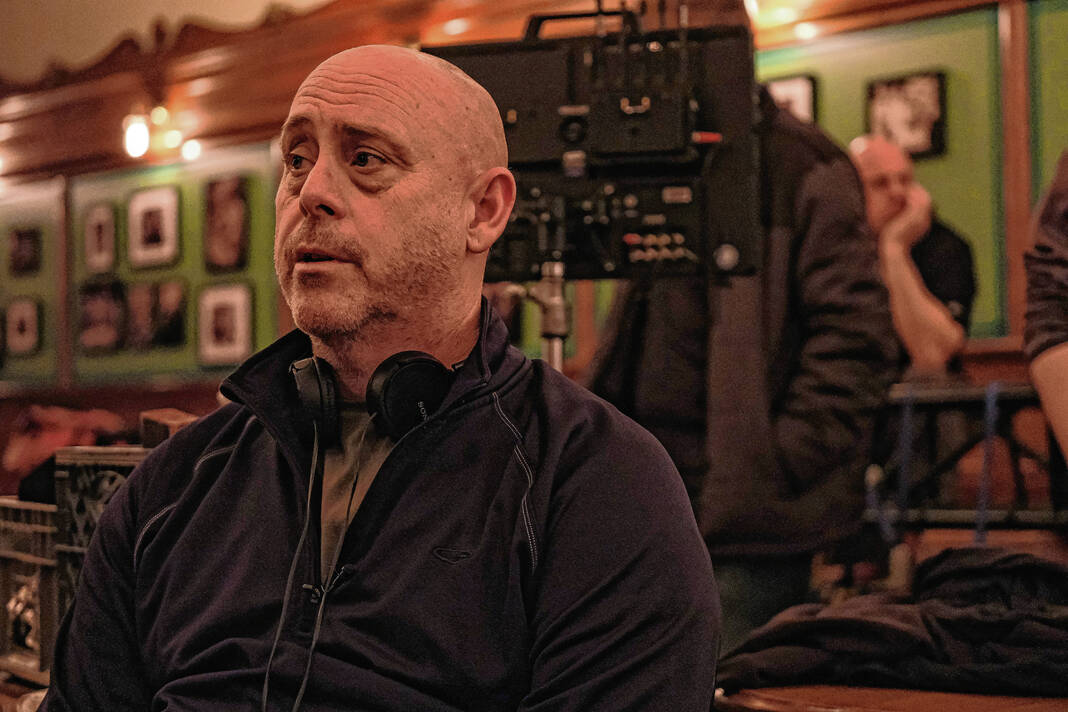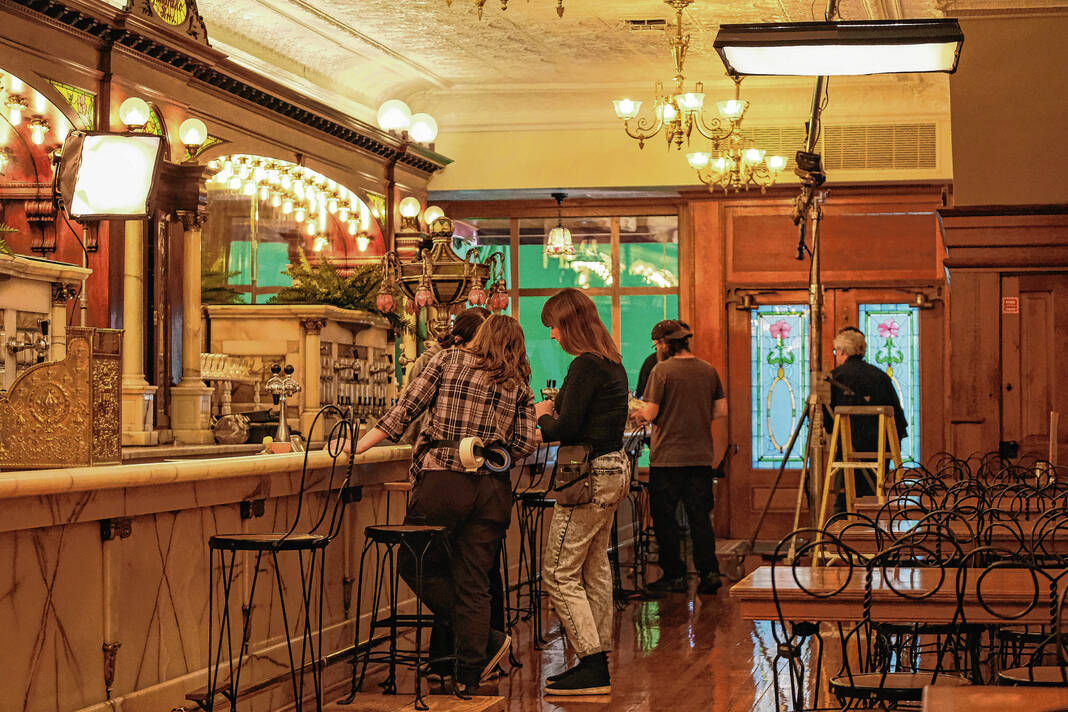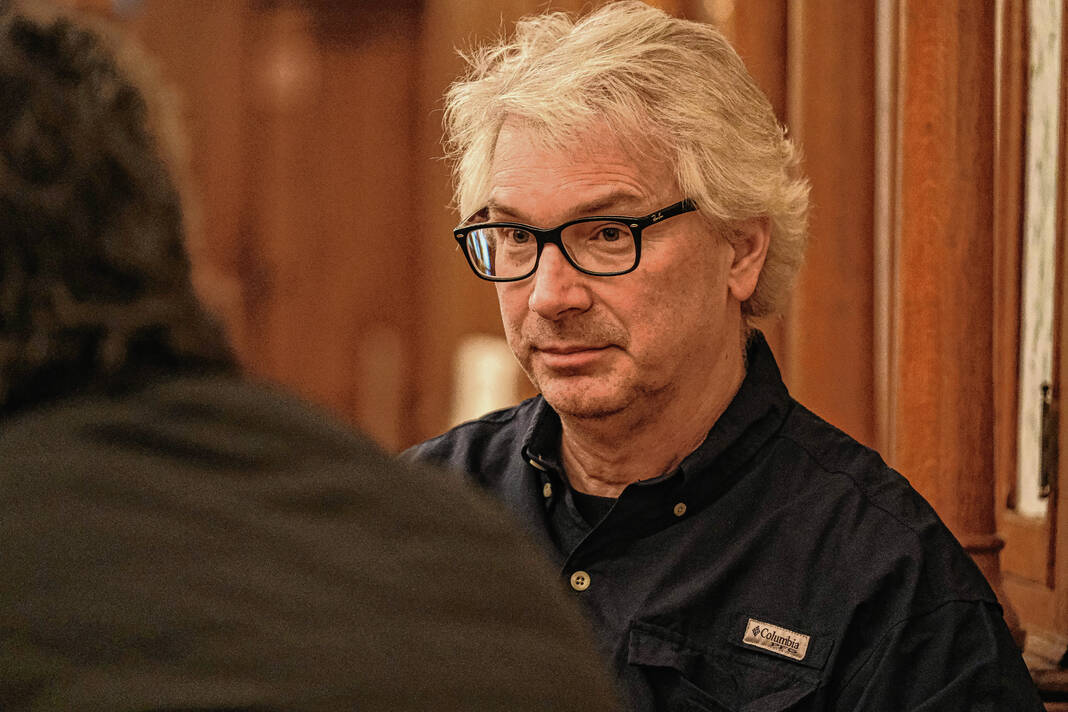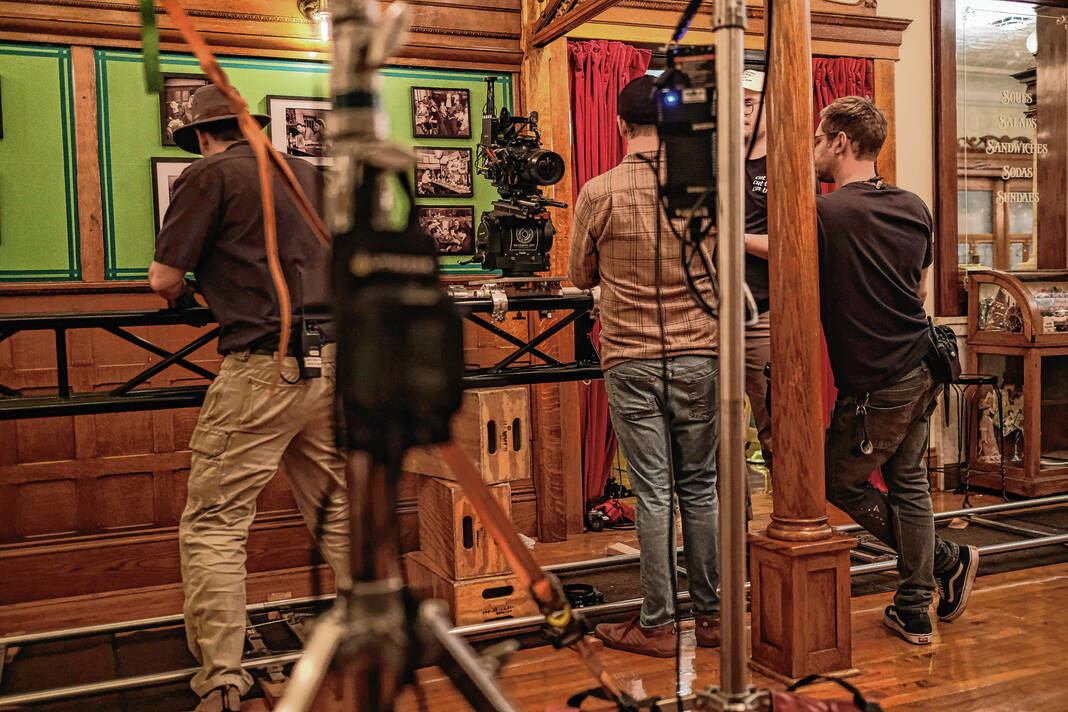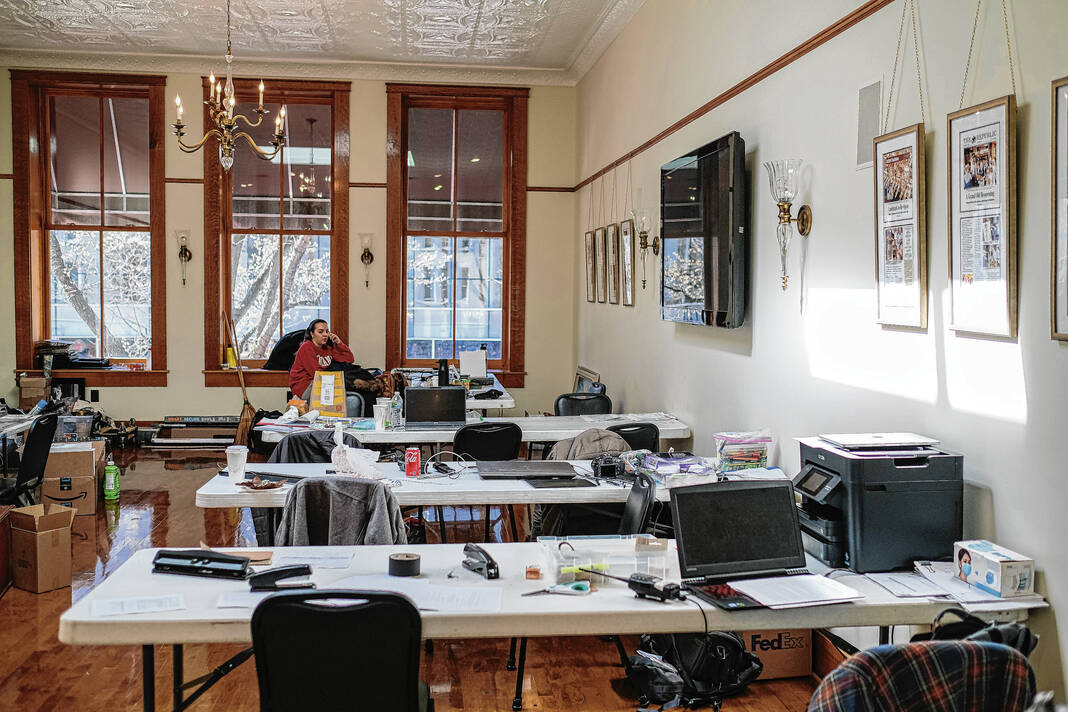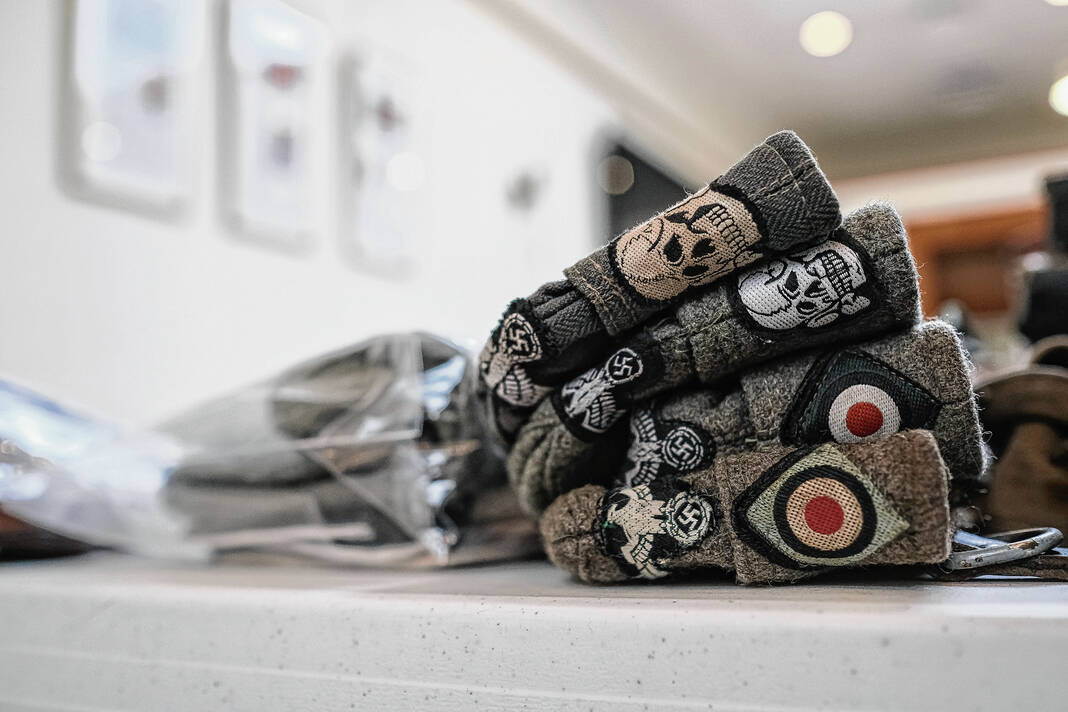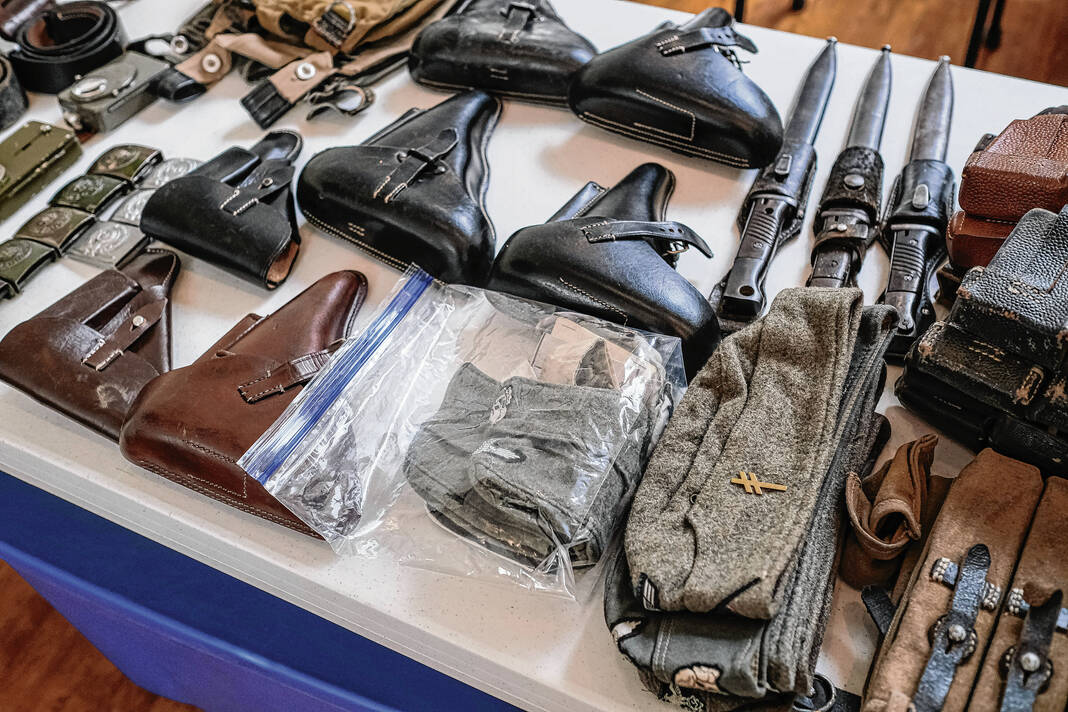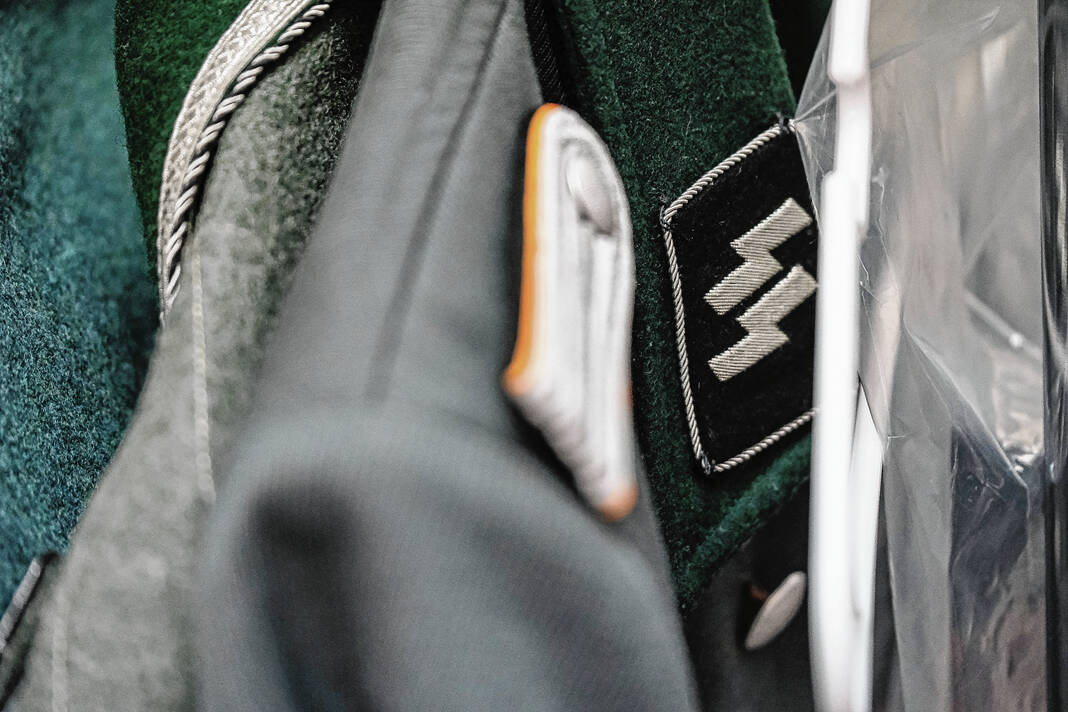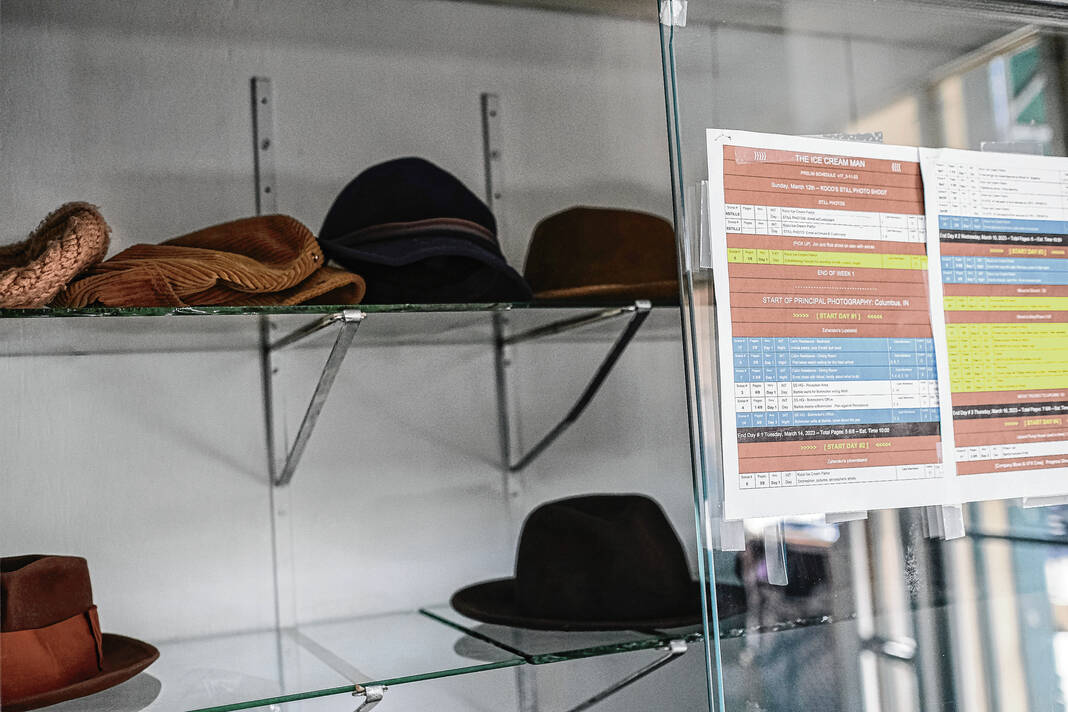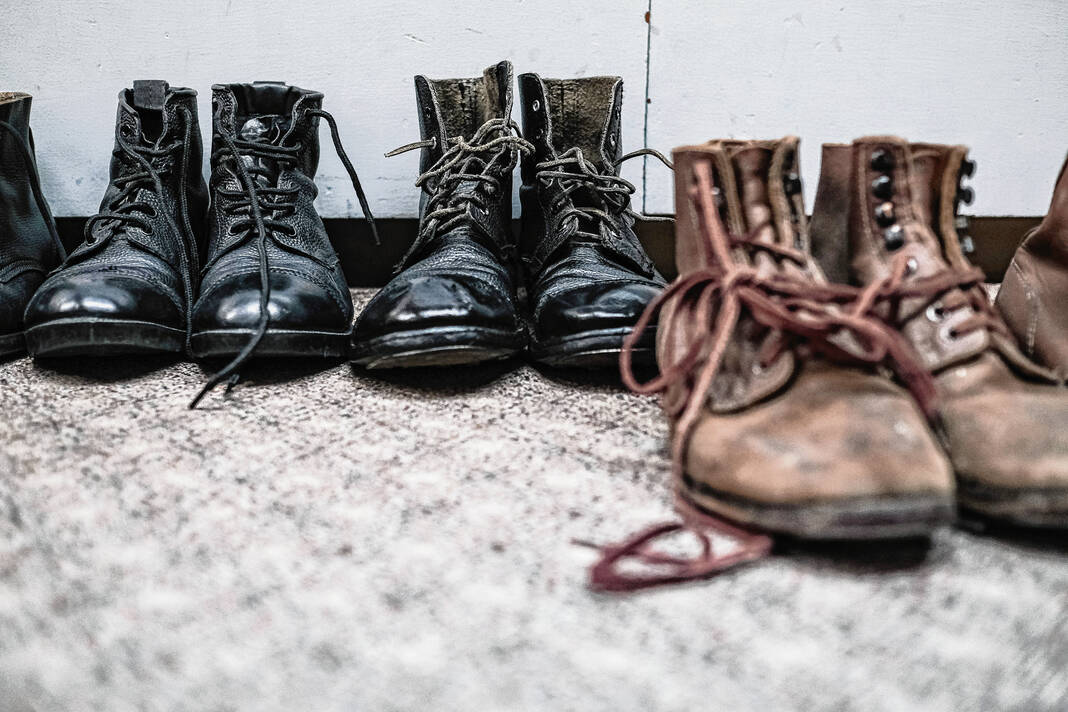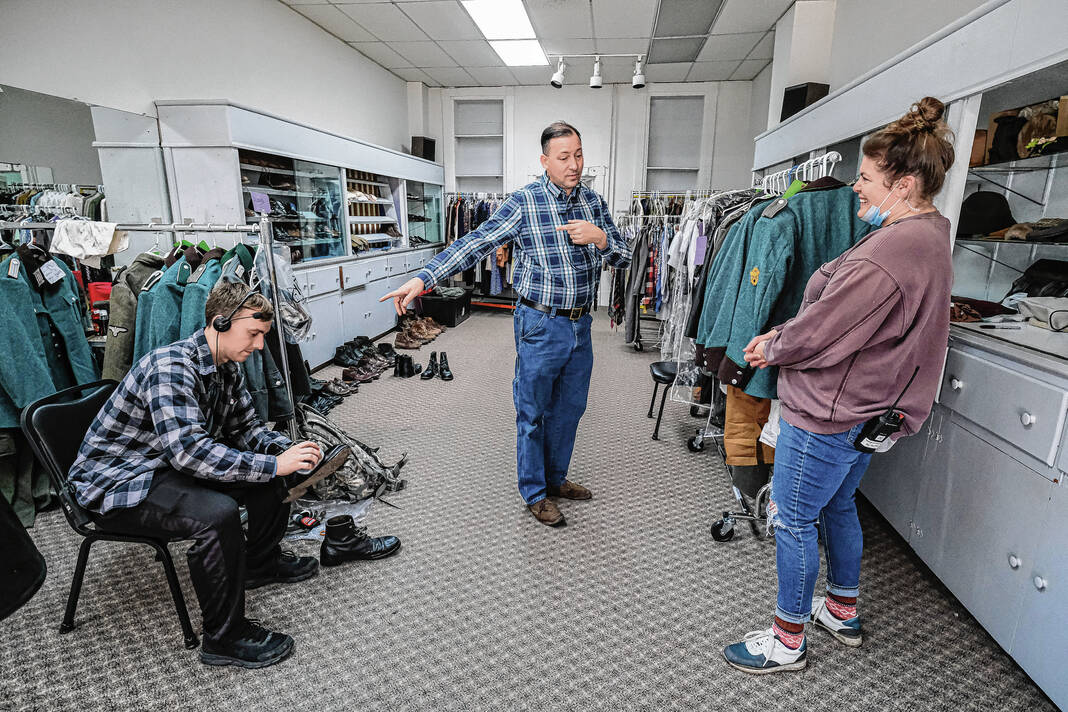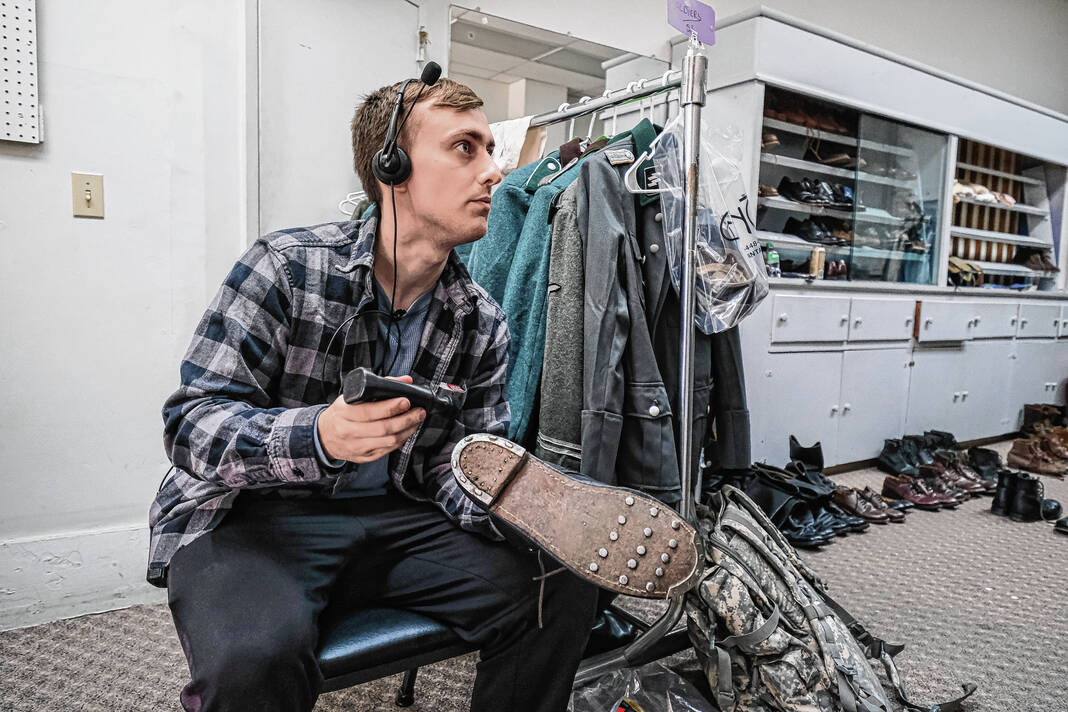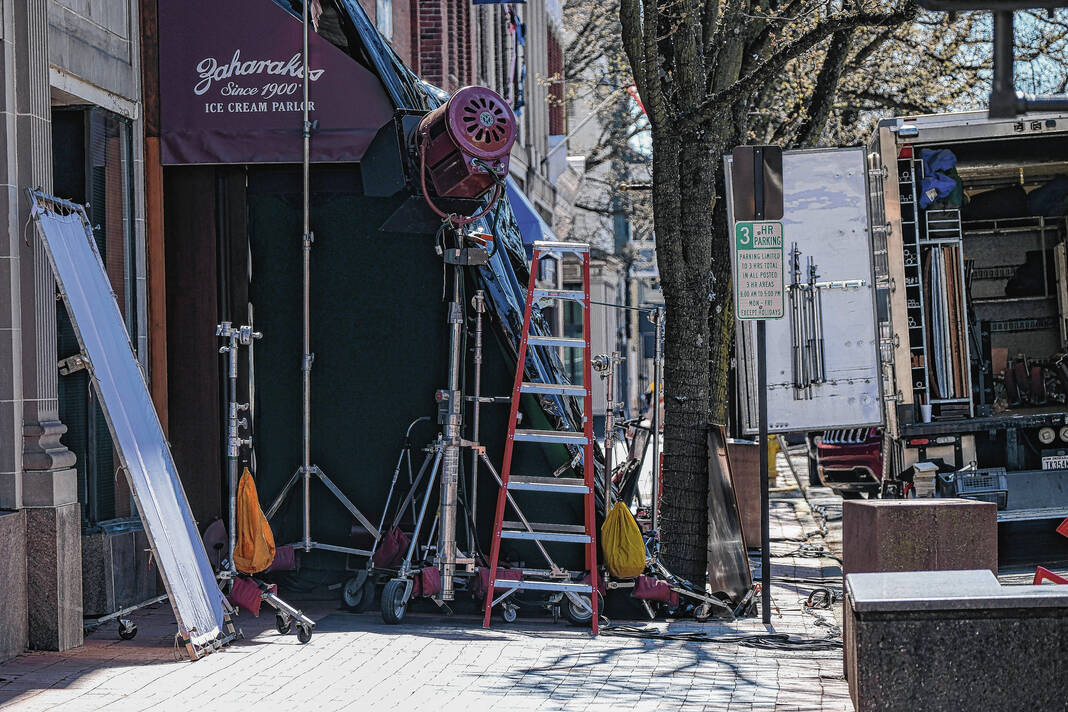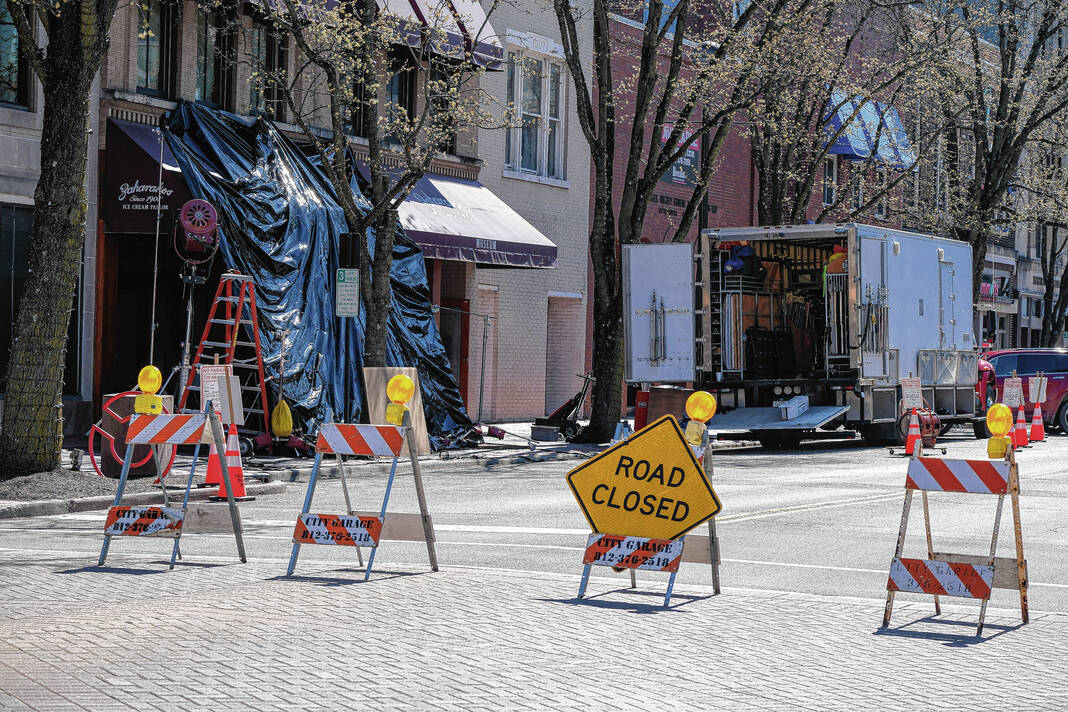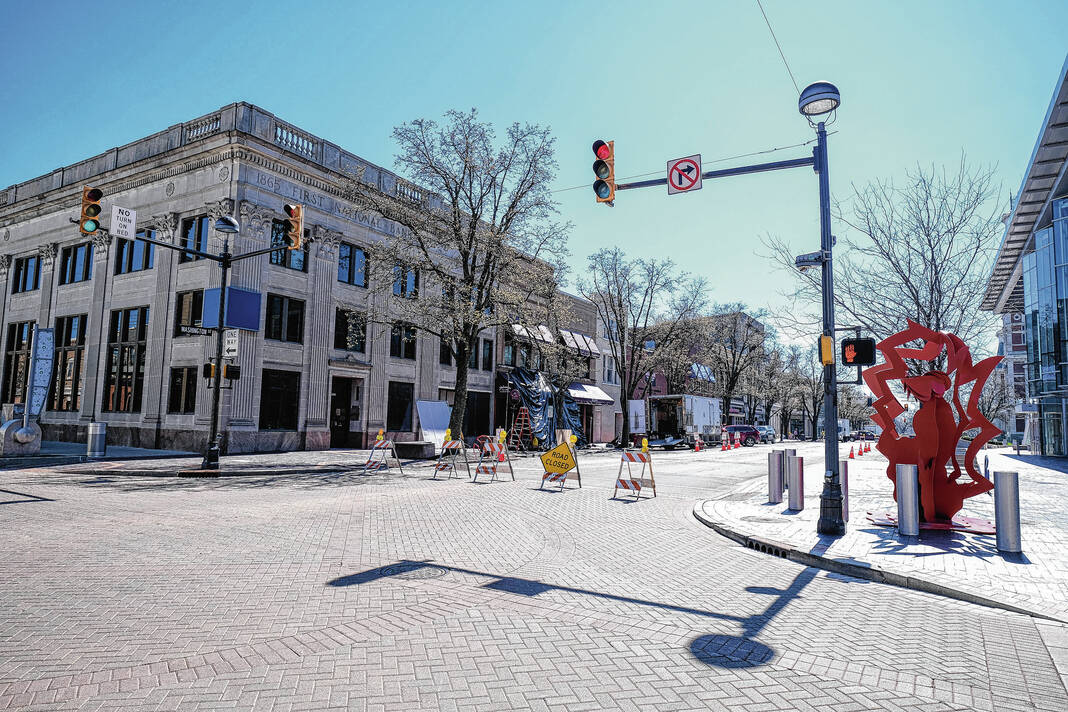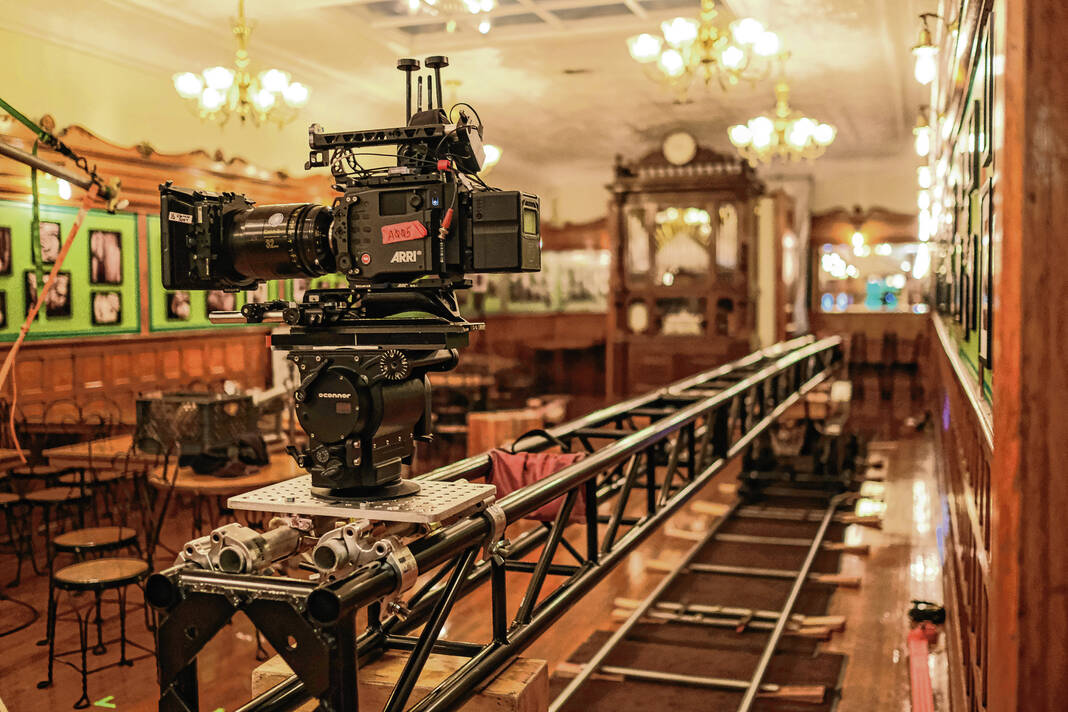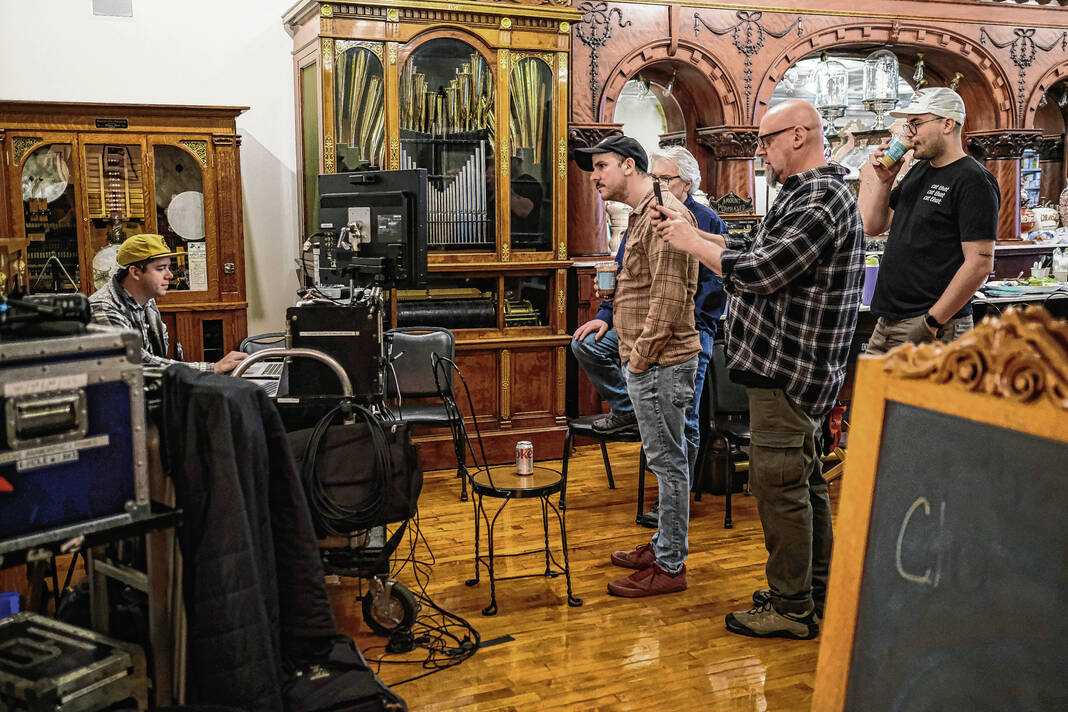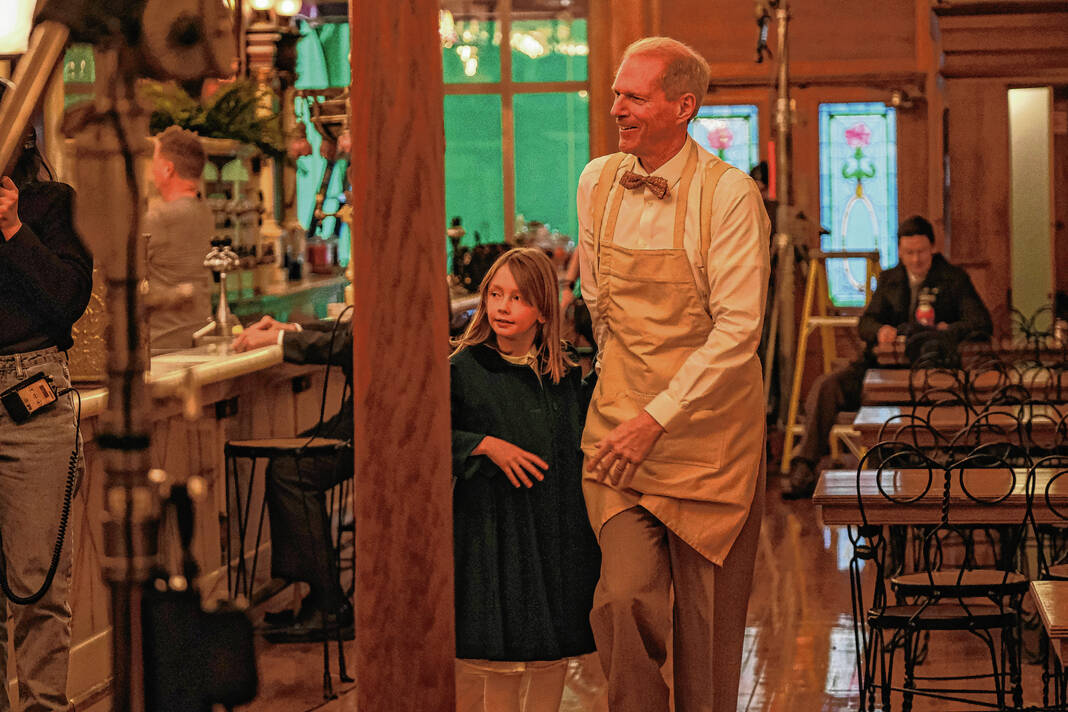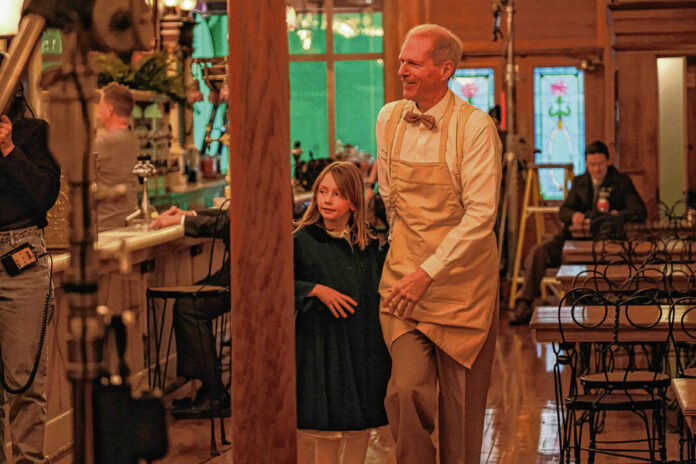
Mike Wolanin | The Republic Actor Noah Emmerich, right, and actor Imogen Hall return to their marks while shooting a scene for “The Ice Cream Man” movie in Columbus, Ind., Wednesday, March 15, 2023. The production team needed a location that looked like a vintage 1940s ice cream parlor for the movie. The movie focuses on the story of German-Jewish refugee Ersnt Cahn who co-owned an ice cream shop in Amsterdam with Alfred Kohn during the Second World War. The ice cream shop was raided in 1941 by the Nazi SS and Cahn and Kohn were taken prisoner. Cahn was executed and Kohn died in Auschwitz in 1945.
The late Tony Moravec had to be smiling as a tender scene played out Wednesday afternoon at his beloved Zaharakos that he restored years ago in downtown Columbus.
“I want ice cream,” a little girl named Anneke Van’t exclaimed to Ernst Cahn standing near the celebrated marble and onyx bar.
“You always want ice cream,” Cahn responded, bending down and holding his arms spread wide toward her.
“Because ice cream is the most important thing on earth,” the child exuberantly said.
“You are very wise,” said a grinning Cahn, sweetly scooping her into his arms.
“And cut!” yelled director and writer Robert Moniot nearby.
The conversation unfolded between actors Noah Emmerich and Imogen Hall during a day of shooting the short film “The Ice Cream Man” at the 1900 restaurant reimagined as Cahn’s Koco Ice Cream Parlor in 1941 Amsterdam. Moniot looked all over Europe, New York and Los Angeles last year for a period place with a design and decor that could pass for an authentic 1940s business before using Google to search for “1900s ice cream parlor.”
Zaharakos was the first mention to pop up. He eventually reached Moravec, who agreed to close the restaurant for a week of shooting and even put up $50,000 toward the movie budget.
“We became fast friends,” Moniot said, adding that they soon spent a week together here. “… Tony is absolutely the guardian angel in all of this.”
Moravec died Nov. 9, hours after Moniot had last spoken to him by phone.
The film highlights the story of the Jewish Cahn, a Netherlands World War II-era ice cream parlor owner who chose resistance in spite of certain death during the Nazi invasion. His arrest led to the February Strike of 1941 — the first anti-Nazi protest.
More than 300,000 workers in Amsterdam went on strike February 25 and 26,1941, to protest Cahn’s arrest at his shop, and the ongoing, forced labor of Jews by the Nazi regime. A film crew of 80 people — nearly four times the size of the “Columbus” film crew in 2016 — spread between Zaharakos and an empty Fourth Street storefront serving as a costume storage area, have been in town since Sunday.
Scenes still to be shot include a torture segment to be done at Upland Brewing Company on Lindsey Street and crowd protest scenes scheduled Saturday at Blairex Laboratories Inc. on Indianapolis Road.
Moniot acknowledged some stress in aiming to keep up with a hectic, planned filming and production schedule. But he is resting in one element beyond the everyday.
“This entire process feels very led,” he said.
Gregor Wilson, one of the film’s producers and a 35-year movie veteran, has always felt led to films with a strong theme. He worked, for example, on Steven Spielberg’s “Munich,” about an Israeli spy assigned to retaliate after the murder of 11 Israeli athletes and their coach at the 1972 Olympics. He sees “The Ice Cream Man” as powerful, especially in these times of ethnic tension and anger.
“This is such a very important film in terms of its message designed to give people courage to stand up to hatred and persecution,” Wilson said.
As he spoke, one floor above him in the restaurant’s events room was paraphernalia for the film — real Nazi soldier helmets, bayonets and more starkly spread on tables near a stack of film scripts.
Patrice Jennings-Rado, the film’s executive producer, loves the movie’s timing in a world where people have attempted to deny entire segments of history.
“One of the craziest things I’ve ever seen are people claiming that this (atrocity) never ever took place,” Jennings-Rado said.
She’s already thinking ahead about the film. Just the other night, after a shoot, she was strolling past YES Cinema downtown. She stopped in for popcorn and a drink — and later launched the idea with YES leaders of possibly showing “The Ice Cream Man” at the cinema in slightly similar fashion the way “Columbus” played.
She mentioned that she was sorry never to have met Moravec — for one good reason.
“I feel like Ernst and Tony,” she said, “were somewhat kindred spirits.”
More about the film
For more, visit theicecreamman.movie.

